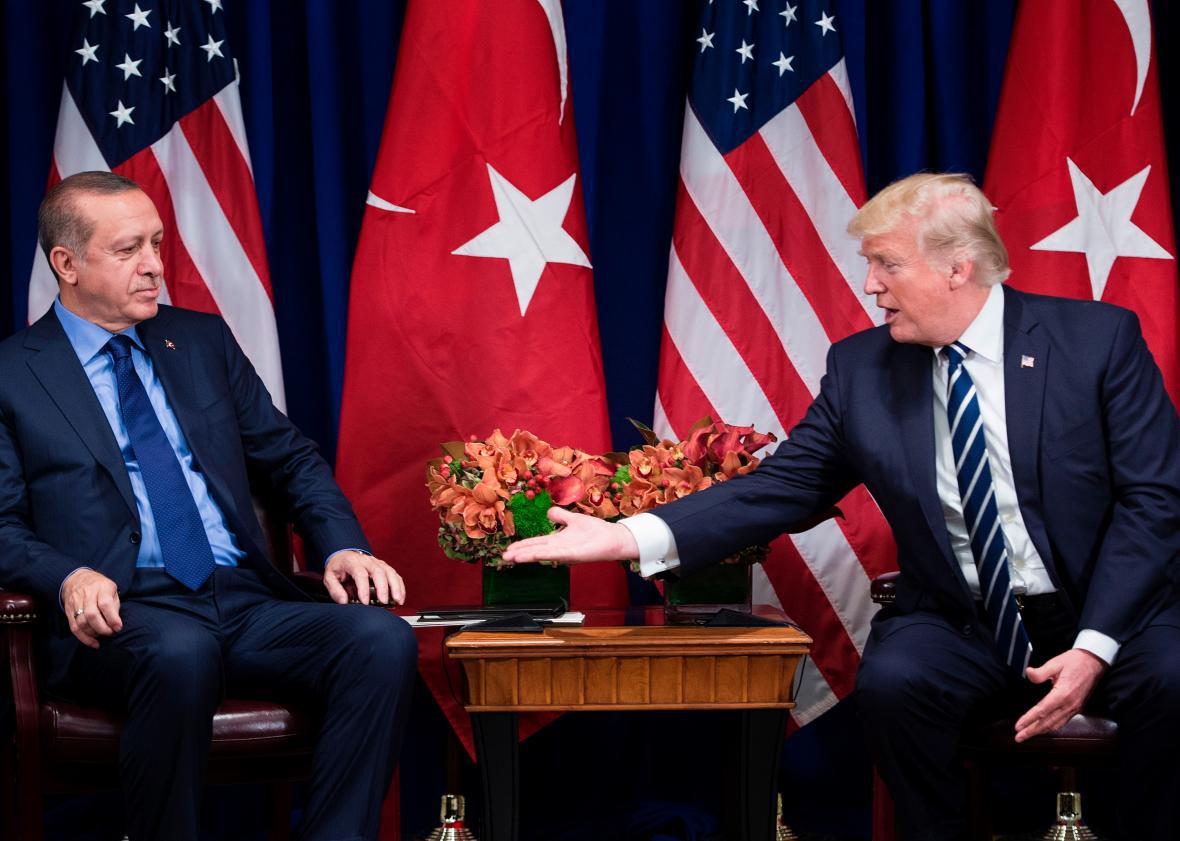A Turkish court’s sentencing of a Wall Street Journal reporter, in absentia, to two years in prison on Tuesday is both the latest example of the Turkish government’s ongoing crackdown on freedom of the press as well as another flare-up in an escalating diplomatic crisis between Ankara and Washington. The reporter, Ayla Albayrak, a dual Finnish–Turkish citizen, was charged with spreading terrorist propaganda for an article about urban warfare in Turkey’s Kurdish-majority southeast. The well-reported and balanced article included quotes from members of the PKK, the Kurdish militant group considered a terrorist organization by both Turkey and the United States. Albayrak is currently in the United States so thankfully won’t join the dozens of other reporters jailed in Turkey in an unprecedented recent crackdown—but won’t be able to return to Turkey.
The charge against a reporter for an American newspaper comes a little over a week after the arrest of a Turkish employee of the U.S. embassy in Ankara. That arrest prompted the United States to suspend non-immigrant visa services to Turkish citizens. Less than a day later, Turkey issued an identical suspension targeting Americans. This means that with some exceptions, Turks and Americans are now indefinitely barred from traveling to each other’s country.
The embassy employee, Metin Topuz, has been accused of espionage and links to Fethullah Gulen, the exiled U.S.-based cleric whom Turkey accuses of masterminding last year’s failed coup attempt.* Thousands of people in Turkey accused of Gulen ties have been purged from their jobs or arrested since the coup attempt.*
These include about a dozen Americans. Among them are Serkan Golge, a NASA scientist of Turkish descent who was arrested while vacationing with family. The evidence against him is that he had an account at a Gulen-linked bank and possessed a $1 bill—supposedly a kind of calling card for members of the Gulenist conspiracy. Andrew Brunson, an American Christian pastor who had lived in Turkey for 23 years, has been in jail since October accused of Gulenist links. Turkish President Recep Tayyip Erdogan more or less admitted last month that Brunson is being used as a bargaining chip in Turkey’s ongoing efforts to get the U.S. to extradite Gulen.
“ ‘Give us the pastor back’, they say. You have one pastor as well. Give [Gulen] to us,” Erdogan said. “Then we will try [Brunson] and give him to you.” (The U.S. government is not convinced by Turkey’s claims that Gulen masterminded the coup, and even if it were, a court would have to approve the extradition request.)
Jailing U.S. citizens, embassy employees, and reporters for American media organizations on dubious charges, not to mention holding them for ransom, would be a blatant provocation to any U.S. administration. Given Trump’s proclivities, you might expect him to go ballistic about this. Last fall, when Iran charged two Americans with espionage, Trump tweeted, “This doesn’t happen if I’m president!”
Yet as recently as Sept. 21, Trump described Erdogan as a “friend of mine” and said the U.S. and Turkey are “as close as we’ve ever been.” This was after Erdogan had rebuffed his request to release Brunson and after Erdogan’s bodyguards had been charged in the videotaped beating of protesters on U.S. soil.
To be fair, most of the current crisis with Turkey isn’t Trump’s fault. Erdogan’s main grievances against the United States—the unwillingness to extradite Gulen and the support for Kurdish fighters in Syria—predate the current administration.
But U.S.–Turkish relations are important. Finding a diplomatic solution to the breakdown—one that doesn’t involve just giving Erdogan everything he wants—should be a major priority for the administration. If the president’s limited attention span wasn’t currently occupied with blundering toward unnecessary conflicts with North Korea and Iran and feuding with both his own secretary of state and the chairman of the Senate Foreign Relations Committee, there’d be a lot better chance of resolving the crisis.
*Correction, Oct. 11, 2017: This piece originally misspelled Fethullah Gulen’s first name.
Correction, Oct. 13, 2017: This piece originally misstated the nubmer of people arrested in Turkey’s post-coup crackdown. It is thousands, not hundreds.
